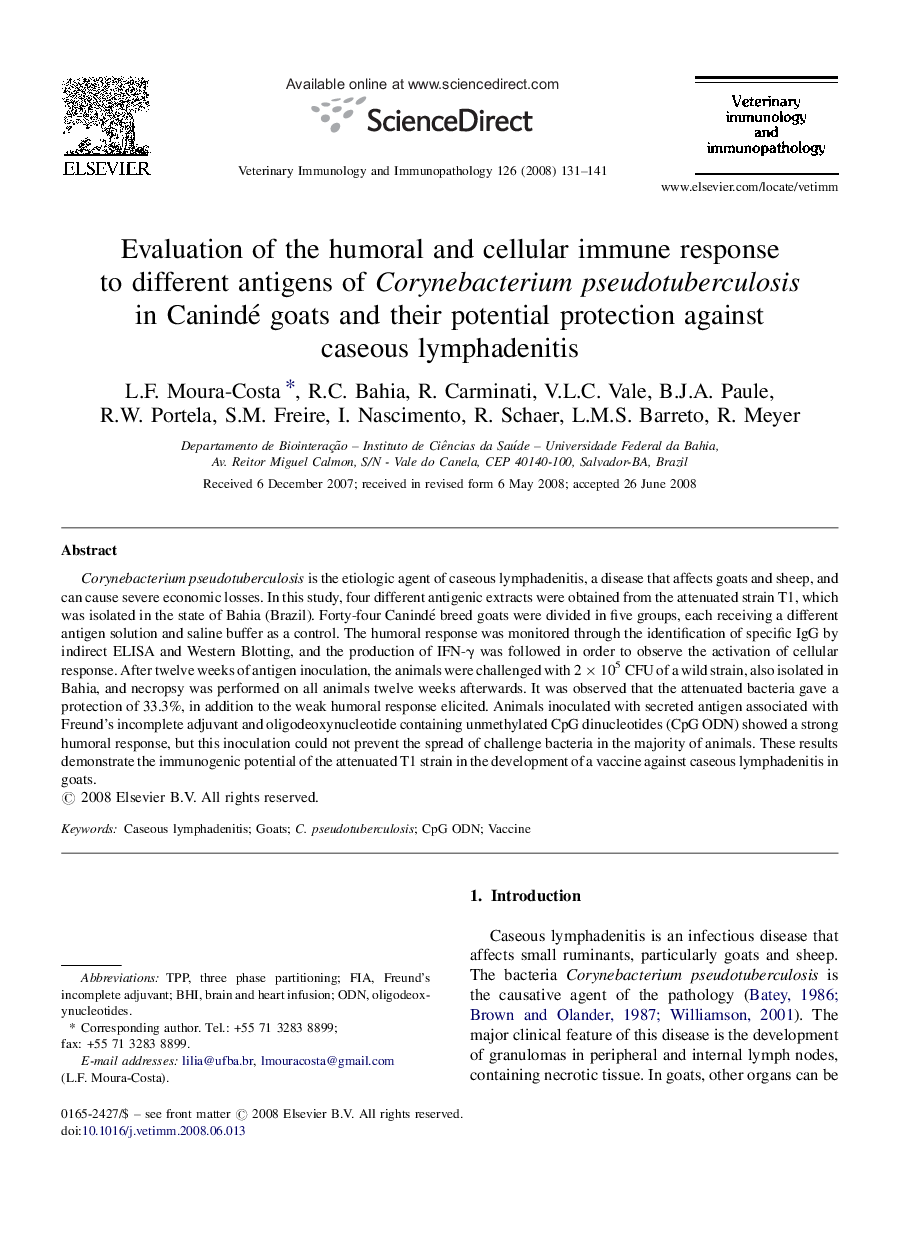| Article ID | Journal | Published Year | Pages | File Type |
|---|---|---|---|---|
| 2462890 | Veterinary Immunology and Immunopathology | 2008 | 11 Pages |
Corynebacterium pseudotuberculosis is the etiologic agent of caseous lymphadenitis, a disease that affects goats and sheep, and can cause severe economic losses. In this study, four different antigenic extracts were obtained from the attenuated strain T1, which was isolated in the state of Bahia (Brazil). Forty-four Canindé breed goats were divided in five groups, each receiving a different antigen solution and saline buffer as a control. The humoral response was monitored through the identification of specific IgG by indirect ELISA and Western Blotting, and the production of IFN-γ was followed in order to observe the activation of cellular response. After twelve weeks of antigen inoculation, the animals were challenged with 2 × 105 CFU of a wild strain, also isolated in Bahia, and necropsy was performed on all animals twelve weeks afterwards. It was observed that the attenuated bacteria gave a protection of 33.3%, in addition to the weak humoral response elicited. Animals inoculated with secreted antigen associated with Freund's incomplete adjuvant and oligodeoxynucleotide containing unmethylated CpG dinucleotides (CpG ODN) showed a strong humoral response, but this inoculation could not prevent the spread of challenge bacteria in the majority of animals. These results demonstrate the immunogenic potential of the attenuated T1 strain in the development of a vaccine against caseous lymphadenitis in goats.
